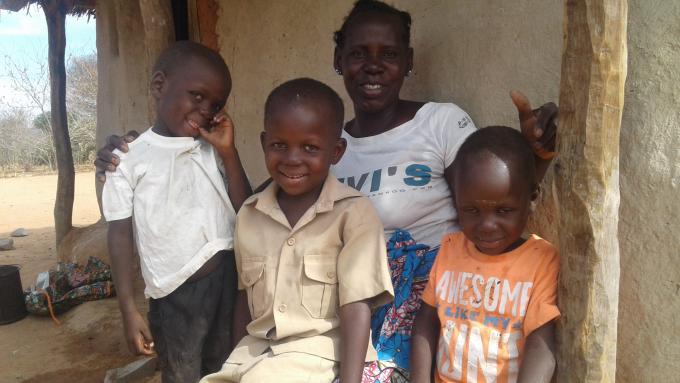Vulnerable households in Binga Districts get cash

It was all joy for Norah and her family after she was registered as a beneficiary for the Emergency Mobile Cash Transfer programme which is being implemented by Save the Children Central with funding from Central Seed Fund (CSF). The cash transfer programme aims at mitigating food insecurities among vulnerable households in Binga District, Zimbabwe.
Norah Mungombe (46), a widow from Siamulonga village in Binga District stays with her three children and two grand-children. Ever since the death of her husband some years back, Norah has been in a dire situation as she struggled to put food on the table without any source of income.
“It was difficult for me to fend for such a large family without a meaningful source of income or support from a husband. My children would go to school hungry, wearing dirty clothes as I could not afford to buy food and soap.”
The introduction of the Cash Transfer programme in her ward and her selection into the programme brought happiness and confidence in Norah’s family and she can now budget and buy basic commodities like any other average family in her area.
“My life changed the moment I was selected and registered as a beneficiary for the cash transfer programme. I knew this meant my family will get food.”
“When $48 was transferred into my mobile phone, we celebrated as a family, I had to budget for food and soap for the kids. I managed to purchase maize meal, vegetable oil, salt, sugar, a bar of soap and petroleum jelly. I am happy that my children now get adequate food and they now go to school wearing clean uniforms.”
Norah wishes for continuity of the Cash Transfer programme saying that it has been beneficial to her and the family.
Implementation of the emergency mobile cash transfer programme started in September 2018 and will end in November 2018. It is targeting 2586 beneficiaries from 608 vulnerable households in the drought stricken district o Binga in northern Zimbabwe. An amount of $8.00 is given to every member within a household each month to enable them to purchase basic food commodities such as maize meal, vegetable oil and pulses.
 Zimbabwe
Zimbabwe